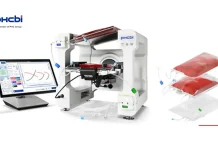Santhera Pharmaceuticals and ReveraGen BioPharma, Inc announce that the first patient has been dosed in a Phase 2 pilot study to assess vamorolone in Becker muscular dystrophy (BMD), funded by the U.S. Food and Drug Administration (FDA).
This Phase 2 pilot study is a randomized, double-blind, placebo-controlled study to evaluate the safety, tolerability and exploratory clinical efficacy on motor function outcomes of vamorolone compared to placebo over a treatment period of 24 weeks in 39 males (aged ≥18 and <65 years) with BMD (ClinicalTrials.gov id: NCT05166109). Participants will be randomized 2:1 to vamorolone 500 mg (250 mg for body weight <50 kg) daily or placebo. The clinical trial plans to enroll at sites in Pittsburgh (USA) and Padova (Italy).
Also Read: LovelyWholesale Launches Its LW Basic Garment Collection
The study is funded by a USD 1.2 million grant from the FDA under their “Clinical Studies of Orphan Products Addressing Unmet Needs of Rare Diseases (R01)” grants program. The grant adds to existing grants from the National Institutes of Health (NIH) – National Institute of Arthritis and Musculoskeletal and Skin Diseases (NIAMS), and the Foundation to Eradicate Duchenne to carry out a clinical trial of vamorolone in adults with BMD.
“There are currently no approved drugs for BMD in any country, and no drugs in clinical development for this indication in the USA or Europe,” said Eric Hoffman, PhD, President and CEO of ReveraGen BioPharma. “Vamorolone has shown efficacy in the pivotal VISION-DMD study in Duchenne muscular dystrophy (DMD), a more severe but related disease, and, based on these findings and its mechanisms of action, this developmental compound may show a benefit in BMD.”
“The treatment of BMD is lacking standard of care recommendations albeit there is a high unmet medical need, and about one fifth of BMD patients use some chronic steroid dosing which is often not well tolerated,” said Shabir Hasham, MD, Chief Medical Officer and Head Global Medical Affairs of Santhera. “Vamorolone could address some important safety concerns that may lead to poor tolerability or early treatment discontinuation, and thus may potentially represent a novel therapeutic approach to the treatment of BMD as a chronic therapy.”
“Vamorolone has been shown to suppress dystrophin-targeted microRNAs, and thus has the potential to increase dystrophin levels in BMD muscle,” said Paula Clemens, MD, University of Pittsburgh School of Medicine, and the Study Chair of the clinical trial.






